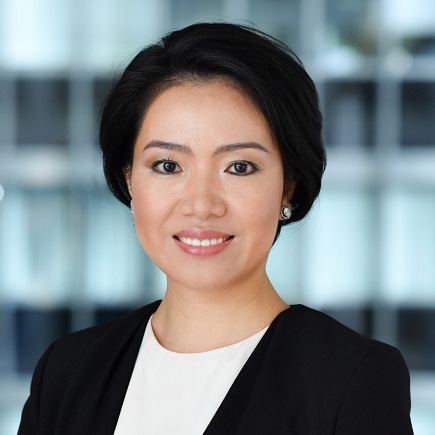Dr. Fan Yang FCIArb
Why have you decided to specialise in ADR? What attracted you to this area of law?
After I graduated with an LLB from Shanghai International Studies University, I studied international and comparative law first in Paris, then in Birmingham and London. I researched and taught international and Chinese comparative commercial law, arbitration and ADR in Hong Kong between 2009 and 2018 while also providing ad hoc consultancy services as well as sitting as a neutral and independent arbitrator and mediator. My hobby is to design, direct and deliver international and comparative commercial law and ADR training programmes in China, Asia at large and across the globe.
I joined King & Wood Mallesons Hong Kong’s Dispute Resolution team as a full-time consultant in July 2018 and have thoroughly enjoyed working on cross-border commercial disputes arising out of high profile and complex mining operation, shareholders arrangement, as well as construction and infrastructure projects.
Having lived, studied, researched and practised international and Chinese comparative law in Shanghai, Paris, Birmingham, London and Hong Kong for more than 20 years, I find no other areas of law are more challenging and rewarding than ADR.
What do you consider to be the biggest challenge in your career as a female practitioner in arbitration/ mediation?
Finding a balance between achieving personal and professional goals has been a personal challenge for me. I confess that I am a workaholic and very passionate about my pursuit of a successful career in arbitration and mediation. But, as a mother of two young children (an 8-year old boy and 4-year old girl), I do feel guilty for spending more time working than playing with them. Fortunately, KWM is quite flexible. Generally my work hours are pretty good, however that is largely dependent on how busy the team is. Overall team members here appear receptive to people working from home and having other commitments.
What do you consider as the biggest challenge for the ADR in the future?
Let me quote a great master of arbitration, René David, who wrote: ‘arbitration will hardly be regarded by a party as a suitable way of solving the case if it is to be administered by an arbitrator who is imbued with the ways of thinking and the prejudices of another culture’.
Another great master of arbitration, Pierre Lalive wrote: ‘in the case of an international dispute, the arbitration also must be ‘international’, which does imply, as a general rule, that it must take place preferably in a third, neutral country (‘neutral’ in relation to both parties), before an ‘international’ panel of arbitrators, i.e. including arbitrators of different nationalities and backgrounds, and this is not enough, for it should preferably be argued by an ‘international’ team of lawyers or at least international-minded and trained lawyers.’
Based on these two masters’ as well as many other leading scholars and practitioners’ wisdoms, I believe diversity and flexibility remains the key to the further development and continuing success of the practice of ADR internationally.
If you had a time machine, what piece of advice would you give to yourself at the beginning of your career in ADR?
I would invest in qualification and experience in a non-law subject, such as engineering, construction or psychology.
How has a membership with the Chartered Institute of Arbitrators benefitted your career?
Tremendously! I have met through the CIArb global networks many like-minded ADR practitioners whose work I admire and who have inspired me to enter into the profession. Many still most generously continue to support me in my pursuit to develop a career in international arbitration and cross-border ADR practice.
If you could experience first-hand one historical event what would it be and why?
2 July 1928, when all women in Britain over the age of 21 were finally given the right to vote on equal terms with men by the Representation of the People (Equal Franchise) Act 1928, after centuries of relentless struggles and efforts.
In 1947, women won suffrage through Constitution of the Republic of China (ROC). In 1949, the People's Republic of China (PRC) replaced the ROC as government of the Chinese mainland. The ROC moved to the island of Taiwan. Although the PRC constitution recognizes women's equal political rights with men, I have not yet had an opportunity to vote in any government elections in China Mainland.
If you could be a film/book character for one day who would it be and why?
Hua Mulan (Chinese: 花木蘭) a legendary Chinese warrior who disguised as a man to take her aged father's place in the army. Mulan fought for twelve years and gained high merit, but she refused any reward and retired to her hometown.
My parents have two daughters, my elder sister and me. They were hoping that I would be a boy. After I was born, they were so disappointed that they actually considered swapping me with a neighbor’s son. I was brought up as a boy sporting short hairdo’s and dungarees while my sister wore dresses, had long hair, often posing with a doll.
My parents have given me all the freedom and privilege as their ‘son’. I went to boarding school at a young age and then left home to study in Shanghai all on my own. I studied abroad and travelled around the world while my sister stayed close to my parents.
I think I would enjoy being Hua Mulan, fighting equally among men but without disguising myself as a man!
